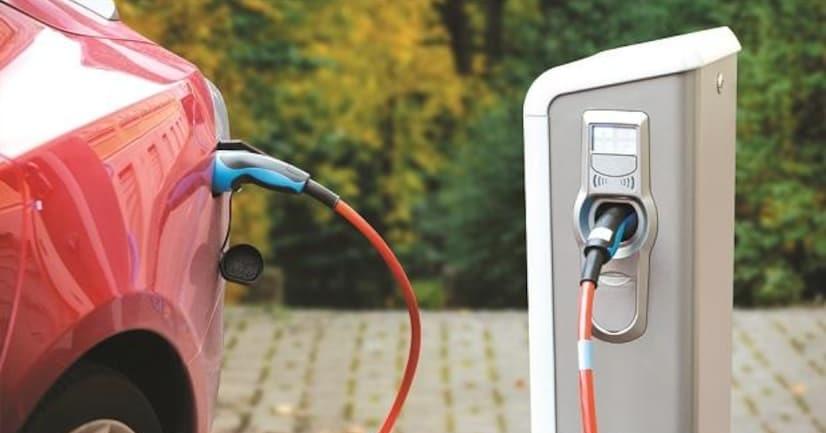The diesel engine has been one of the most popular options for drivers worldwide since its invention. However, in recent times, diesel has experienced a significant drop in sales, with only 1 in 20 new cars being diesel-powered. This can be attributed to numerous factors, including increasing concerns about climate change and the detrimental effects of diesel emissions on the environment.
The death knell of diesel has been ringing for a while now, and the trend of declining diesel sales in new cars is visible across most countries. In the US, diesel demand is projected to decline, contradicting economic growth. This change in attitude towards diesel is primarily driven by people’s growing awareness of the environmental impact of diesel-powered vehicles and the increasing availability of greener alternatives.
Environmental Concerns Are Leading the Decline of Diesel
There is a clear sense of urgency when it comes to environmental concerns. As climate change and global warming continue to impact the world in various ways, individuals and governments are taking action to do their part in reducing their carbon footprint. This has led to the decline of diesel fuel cars, with consumers choosing vehicles with lower emissions and better fuel economy.
One of the primary reasons for this shift is the harmful effects of nitrogen oxide (NOx) emissions produced by diesel cars. These emissions contribute to respiratory problems, ozone depletion, and the deterioration of air quality. Furthermore, diesel engines produce higher carbon dioxide (CO2) levels than petrol engines, contributing to climate change and global warming.
Introducing new emission standards and regulations has also heightened the trend towards cleaner alternatives. For instance, the European Commission implemented Euro 6, which requires vehicles to produce significantly less nitrogen oxide (NOx) emissions than their predecessors. Failing to meet these requirements has significant consequences, including hefty fines for manufacturers that breach regulations.
The Fall of Diesel Cars
According to What Car?, the popularity of fuel type has significantly declined for two reasons: the negative perception caused by the Dieselgate scandal and the increasing demand for electric cars. In response, car manufacturers are eliminating diesel options from their range of models. The Volkswagen Dieselgate scandal in 2015 revealed that the German car manufacturer had cheated emissions tests to make their diesel vehicles appear cleaner than they were. The scandal created scepticism and concern over the validity of emissions tests. Many people, including regulators, governments, and environmental groups, filed Volkswagen emission claims, leading to billions of dollars in fines and compensation. More information about the issue can be found at https://www.emissions.co.uk.
Are Alternative Fuels the Future?
With the decline of diesel cars, the automotive industry is looking towards alternative fuel alternatives, such as fully electric, hybrid, and hydrogen-powered vehicles.
Fully electric vehicles, or Battery Electric Vehicles (BEVs), are powered solely by an electric motor and battery. They emit zero exhaust emissions, making them a highly sustainable solution for transportation. However, concerns remain regarding the limited availability of charging infrastructure, relatively shorter driving range, and high costs involved in their manufacturing.
On the other hand, hybrid electric vehicles (HEVs) offer a combination of electric and petrol/diesel power. They have an electric motor and a smaller internal combustion engine, making them more efficient and sustainable than conventional fuel vehicles. HEVs have less range anxiety than BEVs and don’t rely solely on the charging infrastructure. However, HEVs still emit pollutants, and their sustainability depends on the energy mix and efficiency of the internal combustion engine.
Hydrogen fuel cell electric vehicles (FCEVs) utilize a fuel cell to convert hydrogen into electricity, emitting nothing but water as a byproduct. While they require specific refuelling infrastructure and have higher production costs, they boast extended driving ranges and shorter refuelling times compared to battery electric vehicles (BEVs).
Is This the End of Diesel Cars?
The What Car? survey revealed that a staggering 90% of surveyed car buyers are looking into alternative fuel options instead of diesel, making it safe to say that the future of diesel cars is bleak. Even more striking, two-thirds of these drivers express unwavering certainty that they will never purchase a diesel vehicle again.
The shift towards alternative fuel vehicles will continue as governments worldwide enforce strict emission regulations and hold manufacturers to account for diesel claims, and consumers are increasingly environmentally conscious. Additionally, many car manufacturers, such as Volvo, Jaguar, and Bentley, have announced their plans to go fully electric and stop producing internal combustion engine vehicles altogether.
However, it is essential to note that diesel technology has come a long way from its earliest days, and diesel engines remain an efficient and powerful option for heavy-duty vehicles such as lorries, buses, and agricultural machinery. Additionally, as car manufacturers continue to improve the efficiency and sustainability of diesel engines, there may still be room for diesel in the future of transportation.

